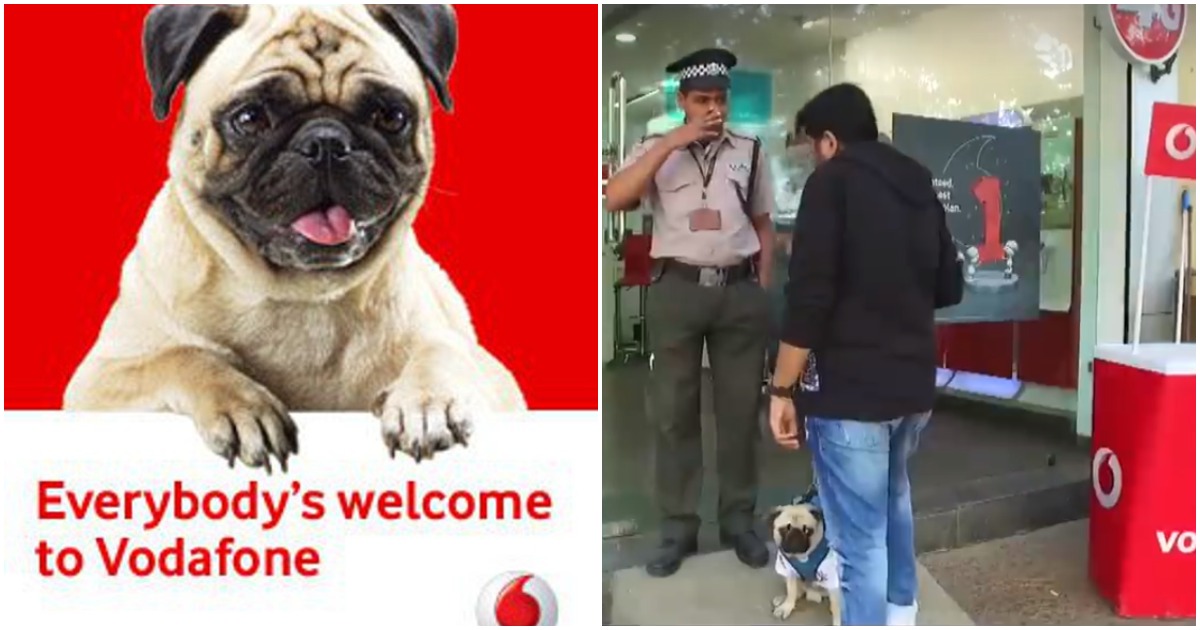The Vodafone pug goes wherever you go all in India — as Vodafone’s ad shows, it dutifully follows you over hills, rivers and valleys. But there is a place where the little pug allowed to follow you, in spite of its best efforts — Vodafone’s own stores.
People are checking to see if brands let their own mascots enter their stores, and are being left disappointed. A video shows a man trying to get his pet pug along when he visits a Vodafone store, but he’s stopped by the security guard. “But the company uses it in their ads,” the man tries to argue, but it’s no avail — even as posters of the pug are plastered within the store, a real pug isn’t allowed in.
This isn’t limited to Vodafone — the video goes on to show someone trying to enter a Hush Puppies store with an actual puppy, but is similarly rebuffed. And things are no different at Syndicate Bank, which has a dog on its logo — a woman wasn’t allowed to have her German Shepard into a Syndicate Bank ATM.
Now nobody expects brands to allow all flagship animals into their stores — things wouldn’t be pretty if someone wanted to shop at Lacoste with their pet crocodile — but it shouldn’t be hard for dogs to be allowed entry, especially if they’re trained. Dogs are often allowed into stores abroad, and even in offices. Dogs are allowed into Google’s headquarters in Mountain View, and a host of other tech offices, and the trend is slowly catching on in India too.
And brands which use cute animals to sell their products might have a higher responsibility towards issues of animal welfare. Being allowed into stores that they endorse is just the first step — brands can also help signal their commitment to their furry mascots by donating to their charities, or contributing to their welfare. If celebrity endorsers can earn millions being the face of big brands, surely little canine mascots deserve something too.
